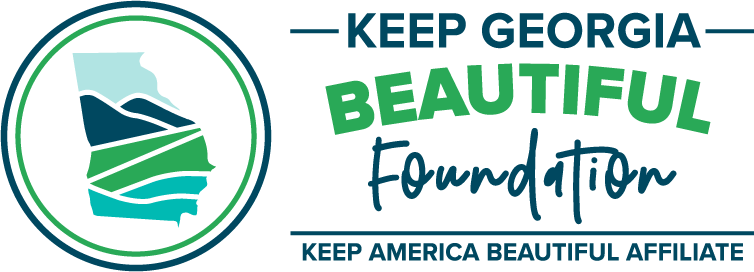Q&A with Emma Wells, Executive Director of Keep Rome-Floyd Beautiful
Have you ever wondered how to attract more pollinators to your town? We spoke with Emma about tackling blight, what it takes to become a Bee City, and why every little bit counts.
What made you choose this line of work?
I’ve always had an environmental bone in my body. I took a botany class my senior year at Berry College and loved it, and after I graduated, I went to Charleston to teach beach and forest ecology at an environmental education center. I got to live twenty feet from the beach for a year and can’t complain about that! When my contract ended, I really wanted to come back to Rome so I emailed a contact I had at the Rome-Floyd eco center. I’d been teaching there and working as a biologist for a little over a year when Mary Hardin, the previous executive director, left her position. I interviewed for the job and everything worked out!
Tell us more about what Keep Rome-Floyd Beautiful is doing this year.
We’ve been busy. The biggest thing we’re doing currently is tackling litter and blight. Recently our county commissioner approached me and we banded together to form a task force, bringing community stakeholders together—realtors, teachers, people in the medical field—to address the issue. Not just litter, but if there’s an abandoned property, how can we clean it up or tear it down?
We always have cleanups, and I’m recording 30-second snippets with our county videographer about recycling. They cover anything from remote sites, to leaving your recyclables loose, to electronics. They’re of the “did you know” variety.
Public art, our tree board, and our bee board also fall under me. Every year, Berry does a first-year service day with their freshmen, and right now, they’re painting two murals along our trails. One is climbing ivy painted along a stairwell and retaining wall, and the other features a monarch butterfly on a flower along with some other insects.
Rome is actually a Bee City. We became certified in the summer of 2017, and it means we commit to spraying less, have a pest management plan, and designate no-mow areas for pollinators. Our parks program identified 50 acres across the county they couldn’t mow for various reasons, whether they were rocky or flooded, and we were able to purchase wildflower seeds for them to plant. It’s a great way to add greenery and saves gas. We did a lot to promote awareness in June during Pollinator Month, and we recently participated in the Great Georgia Pollinator Census.
You’re coming up on your anniversary year with Keep Rome-Floyd Beautiful. What have been some of your favorite moments so far?
I loved what we did for Earth Week this past spring. We had cleanups all week—two that Monday, one on Wednesday, and one on Friday. It was super exhausting, but so cool to see how many different people got involved, from private companies to our tourism office to 130 high school seniors. To see it all come together in such a short time period made a huge impact on me.
Also, in February, we went to talk to Glenwood Elementary kindergarten class about recycling and litter prevention. They were so hyped about it and loved it. A month later, they invited me back, and their music teacher had prepared a program of songs about recycling and cleaning up. They did a recycling rap, and I had a friend dress up as a mascot. All the parents were there too, so the kids learned about it and it promoted family discussion.
What does your affiliate look forward to in the future? What further impact do you hope to see in Rome-Floyd County?
I have been trying to implement small changes, and I am excited to see how they all come together. We have new representatives on our board organized and ready to go. We have the opportunity to get our name out there as an organization that’s doing a lot of good work in the community. We’ve done well in the past, but I’m excited to do even more. I’ve been thinking about how we can bring in more people and partnerships and further promote our visibility. My vision is just that actually: promoting how we can work together with other groups and new faces.
Any advice for people looking to make their communities cleaner, greener, or more beautiful?
I would just say to start small. I will be honest with you: before I took this job, I didn’t recycle. It makes me sound like such a hypocrite; I never littered, but I grew up in a community where we didn’t recycle. You have to educate yourself and start with something you can do. It’s easy when you look at it as a whole to get overwhelmed, so start with something that you can make more beautiful or improve in your own home. Then go from there—tell your friends, tell your family. My mom recycles now! If nobody does anything, it’s going to be ten times worse. Every little bit counts!


